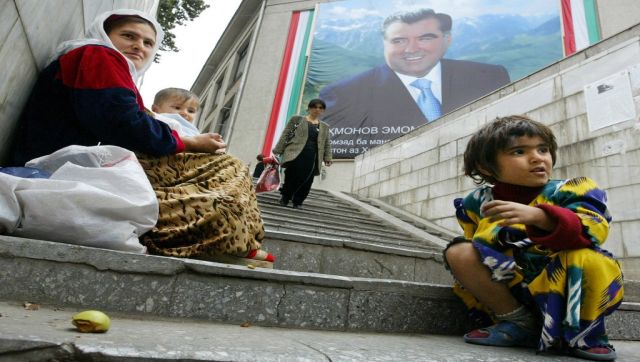The stringent sanctions on Russia and the catastrophic crash of the ruble in wake of the invasion of Ukraine are affecting millions who have nothing to do with the war: citizens of Tajikistan, the Kyrgyz Republic, and Uzbekistan. Millions of migrant workers from these Central Asian countries move to Russia every year in search of labour. Now with companies pulling out of the country, shutting shop amid war, and the dwindling value of Russian currency, these workers have become accidental victims of war. Many of these nations depend on the money that is sent home by their citizens working in Russia. With that being vastly impacted since the conflict started on 24 February, their economies stand threatened. The misery of migrants in Russia The Russian currency has tumbled about 40 per cent against the US dollar in two weeks, which means the value of remittances of workers has sharply declined. In Tajikistan’s Khaund, when a retired teacher visited a bank to withdraw money his son sends from Russia, he was in for a rude shock. It cost him nine rubles to buy a somoni, the Tajik currency on 28 February, four days after the attack on Ukraine. “The cashier told me that I would have gotten more money in the somoni had I come a few days earlier because the rate was seven rubles against the somoni then. I’m upset,” he told a media channel. Malika Abdilloyeva, a domestic helper who works in Moscow, told Al Jazeera that with the ruble crashing, she might have to take up a part-time job to support her family in the Tajik capital Dushanbe. “…the money that I send home is no longer enough for my growing teenage children,” she complained. The woes of migrants from the Kyrgyz Republic and Uzbekistan are similar with many of them facing job losses. Tajikistan is the worst-hit Between January and September 2021, 1.6 million Tajik residents entered Russia, the highest ever in history, according to Russia’s ministry of internal affairs. During the same period, about 70,000 of them received Russian citizenship. The numbers from Uzbekistan were higher, with 3.3 million arrivals, and from the Kyrgyz Republic, 620,000 entered the country. The remittances that these nations receive fuel their economy. According to World Bank data, the remittances constitute 30 per cent of the gross domestic product of Tajikistan, 28 per cent for the Kyrgyz Republic, and almost 12 per cent for Uzbekistan. Tajikistan is the poorest of the Central Asian countries, where 70 per cent of the families depend on remittances from Russia. The per capita GDP of the nation was $844 in 2020, which is less than half of India’s, according to the International Monetary Fund. First pandemic, now war Two years of the pandemic slowed down growth in Tajikistan. Many labourers were rendered jobless while being stuck in Russia. According to Russian Central Bank data for 2020, the volume of remittances from Tajik nationals decreased by $835 million to $1.7 billion. Every time, the Russian economy faces a crisis, the ripple effects can be seen in countries. Tajikistan’s remittances took a hit in 2014 when the US imposed curbs on Russia after the annexation of Crimea. The incoming money halved in the country between 20113 and 2016. Tajik economist Foziljon Fatulloev told Al Jazeera that if the Russian economy suffers a crisis will break out in his country. “Tajikistan will suffer from poverty and a sharp increase in unemployment,” he said. Central Asian leaders not taking sides Leaders from Tajikistan, Uzbekistan, and the Kyrgyz Republic have chosen to say neutral on the war, saying that they have close ties with both Russia and Ukraine. These states want to have a good relationship with the West, but they can’t afford to ruffle the Kremlin’s feathers. “They don’t want to sever ties with the West at all but need to deal with Russia next door,” Tajik political scientist Parviz Mullojanov told Voice of America.
On the situation in Ukraine. We call on both states to make utmost efforts to pursue a dialogue and work on a peaceful settlement. There is no other way.
— Qasym-Jomart Toqayev (@TokayevKZ) March 1, 2022
Moscow, however, claims that the Kyrgyz and Uzbek leaders have told Putin that they support his military action in Ukraine. The media in these countries has maintained that they simply exchanged views on the invasion. With inputs from agencies Read all the Latest News , Trending News , Cricket News , Bollywood News , India News and Entertainment News here. Follow us on Facebook, Twitter and Instagram.


)

)
)
)
)
)
)
)
)



